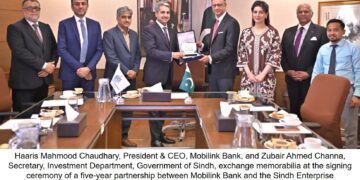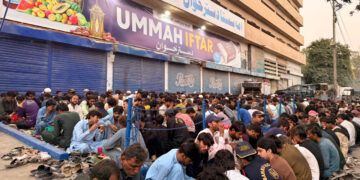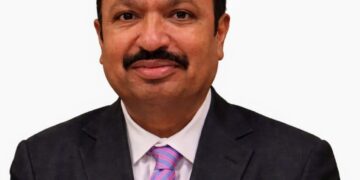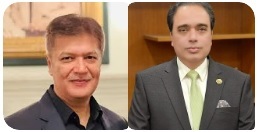A meeting of Shura Hamdard Karachi was held on Wednesday at the Hamdard Corporate Head Office on the topic “Implementation of an Interest-free economic system. Is it possible?”. The meeting was presided over by Justice (R) Haziq-ul-Khairi. The meeting featured guest speaker Mufti Dr. Wasie Fasih Butt, an expert in Islamic finance. The Hamdard Foundation Pakistan’s president, Ms Sadia Rashid, was also present.
Haziq-ul-Khairi said it was a delicate matter that should be resolved in accordance with Islam’s teachings and values. “Pakistan faces economic turmoil due to an interest-based system, which has caused an uncontrollable hike in inflation, and economic hardships in the country” he said. He advised that delegations of scholars and experts on the Islamic financial system from Pakistan should visit Muslim countries and discuss in length the possibility of adopting and implementing the interest-free economic model.
Dr. Wasie Faseeh said that due to the successful business model of Islamic financial institutions, an alternative to the interest-based system had emerged. “Islamic banking has gained a strong foothold in the Islamic world, which proves that an interest-free economic model offers better options for economic growth and development,” he explained. He further informed the Shura members that globally the total volume of the Islamic financial market had reached above $1 trillion with a significant presence in the Gulf region and Muslim-majority countries.
“The Islamic Banking Division of the State Bank has decided to increase Islamic banking market share to 30% in its five-year plan until 2025. Therefore, it is imperative that the general masses be made aware of the benefits of Islamic financing through prestigious forums like Shura Hamdard,” he concluded.
Lt. Gen. (ret.) Moinuddin Haider, the former governor of Sindh, remarked that it was ironic that Muslim scholars were unable to agree on the definition of usury(Riba) to this day. “In developed countries, interest rates are very low, which keeps inflation under control. Therefore, the issue of inflation will not be addressed by adopting an interest-free economic model, but by reforming and industrializing the country’s economy. Exploitation in the name of profit is strictly forbidden in Islam. Therefore, the government should take serious note of ongoing exploitation in the name of charges, rents and profits.”


Senator Abdul Haseeb Khan said: “Businesses need short-term and long-term finance to meet their working capital requirements. Moreover, to remain competitive in the international market, corporate organizations have to lower their costs of doing business. Islamic banks charge a higher percentage than conventional banks, which increases the cost of doing business. As Muslims, we all must avoid Riba, but Islamic banks should lower their unnecessary charges to attract businesses.”
Ibn-ul-Hassan Rizvi articulated that the idea of an interest-free economy would not be achieved via legislation alone. There should be a curb on the black market, corruption, and smuggling to create a favorable environment.
Dr. AbuBakr Shaikh, Engr. Anwar-ul-Haq Siddiqui, Dr. Amjad Jafri, Prof. Ikhlaq Ahmed, Usman Damohi, Cdre. (r) Sadeed Anwar Malik, Col (r) Mukhtar Ahmed Butt and Huma Baig also spoke on the occasion.



















